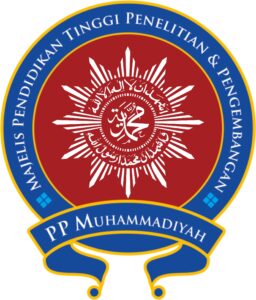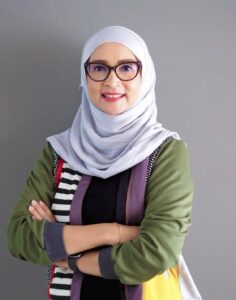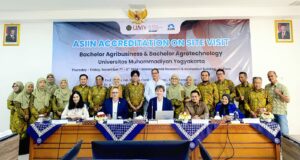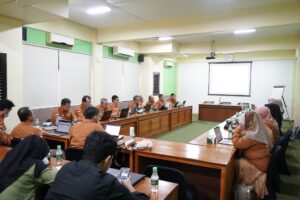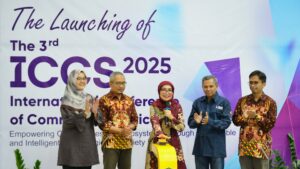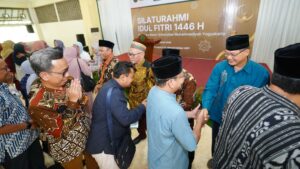Ministry of Women Empowerment and Child Protection of Republic of Indonesia collaborating with Department of Governmental Studies of Universitas Muhammadiyah Yogayakarta (UMY) conducted a workshop on ‘One Students Saves One Family’ on Thursday (14/9) at A.R. Fachruddin B. It aimed to discuss the roles of Tri Dharma Perguruan Tinggi (the Three Principle of Higher Education) in empowering women and protecting children in Indonesia.
The workshop participants were encouraged to share their experiences dealing with social issues and to discusses issues regarding child abuse, sexual crimes, brawls and drug abuse by adolescents.
Assistant Deputy of the Participation of Religious and Community Organizations of the Republic of Indonesia Dra. Meydian Werdiastuti stated that failure or malfunction of family in providing care to family members often occurs in most families in Indonesia. “According to research by the Indonesian Child Protection Commission (KPAI), 70 percent of parents are not able to take care of their children by applying nowadays methods. Most of them nurture their children based on what the parents got when they were child without noticing the era changes. Only 30 percent of parents give mental education such as asking children’s hobbies, problems with their friends, social media status, or reproduction. Thus, I expect that this OSSOF can anticipate violence in children, discriminatory actions against women such as human trafficking, domestic violence, harassment and sexual crimes. Indeed, students’ roles are necessary since they possess high idealism and social sensitivity,” maintain Meydian.
Meanwhile, another speaker of the OSSOF DR. Louisa A. Langi, MSI, MA assested that students should collect credit points of non-curricular activities before they graduate. “To support the OSSOF, students have to have a center and partner such a women organization or another social organization. Besides, identifying the family at risk, nutritional status in a family, affected family, and violence is another factor to be concerned,” she mentioned.
Furthermore, the other speaker DR. Ir. Arianti Ina Restiani Hunga, MSI told that the OSSOF aims to enhance the roles of higher education institutions to improve resilience of family, women, and children. “Understanding and commitment are essential to be instilled to family so that issues of women and children can be overcome. Contribution of higher education and community is important to create women’s empowerment, children’s protection, and sustainable resilience of family (particularly vulnerable and underprivileged family). In fact, the existence of a model of program intervention and activities engaging higher education and students will also be valuable to empower women and protect children,” she ended.

